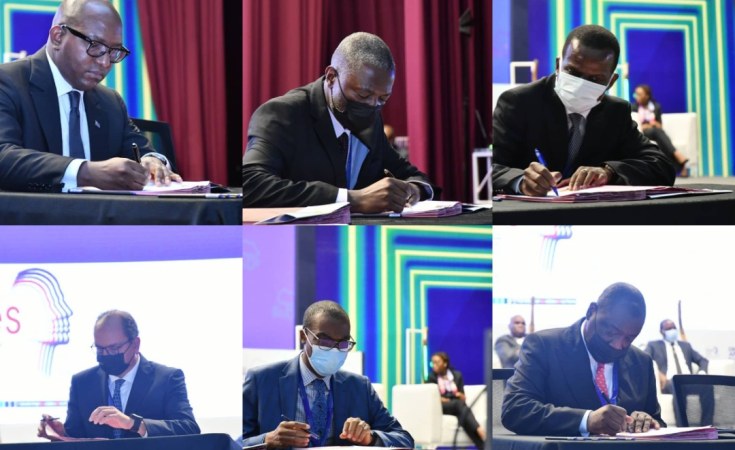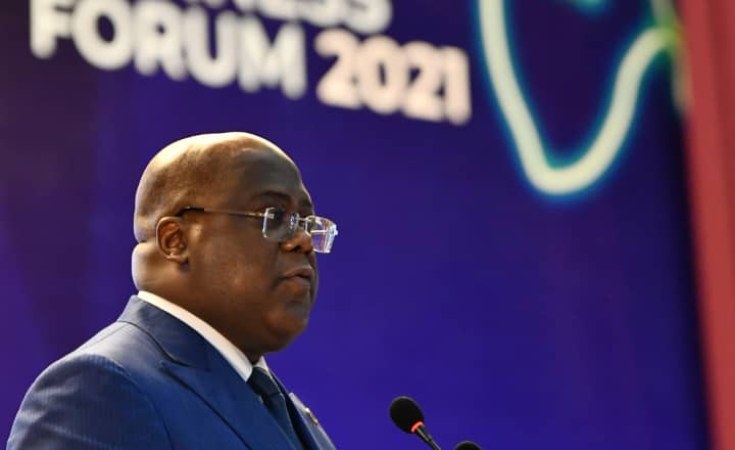The Democratic Republic of Congo (DRC) will develop a lithium battery industry and drive a regional value chain. Firm commitments have been signed, but the country will have to overcome the obstacle of a qualified workforce if it hopes to capture part of the $8 billion in revenues offered by the electric vehicle market by 2025 and $46 billion by 2050.
(Special Envoy in Kinshasa) - The Democratic Republic of Congo (DRC) has registered firm commitments from key players for the development of an electric vehicle battery manufacturing industry.
The country wants to capture part of the 8 billion dollars in revenues from the sale of electronic vehicles by 2025 and 46 billion by 2050.
A goal, according to many specialists, can be achieved mainly because the DRC has more than 25 million tons of cobalt identified in its subsoil, or two-thirds of the world's identified reserves.
Thus, the country wants to encourage the transformation of African mineral resources on the continent in order to increase Africa's share of the value chain in revenue accrued from the sale of batteries and electric cars, whose market is estimated at more than 7 billion dollars.
A study by the international agency Bloomberg presented at the official opening of the DRC-Africa Business Forum 2021 shows that "investing in the DRC costs the investor 39 million dollars, while in the United States the same investment costs 117 million dollars.
The goal of becoming a hub in the electric battery industry is ambitious, but the DRC faces the obstacle of developing a skilled workforce capable of implementing this industrialization project.
For the first five years, the DRC will have to rely on international expertise. The observation was made during the panel at the just concluded DRC-Africa Business Forum titled "Skills for the Development of Batteries in the DRC" organized by Rawbank. The forum, which ended on Thursday, November 25 in Kinshasa was organized by the United Nations Economic Commission for Africa (ECA) and the government of the DRC.

Faced with this skills shortage, Mr. Mustapha Rawji, General Manager of Rawbank, announced that the bank he manages will invest in this area to help develop higher training institutes.
For most of the actors who took part in this panel moderated by Mr. Jean-Marc Kilolo, an Economist at the ECA's Sub-regional Office for Central Africa, investing in training is an imperative to achieving the ambition set out by the DRC government.
In this context, some specialists believe that it is necessary to communicate the countries ambition to young people to sensitize them to electric vehicle revolution expected in the coming years as well as the potential of jobs the emerging sector can offer them.
The Dean of the Faculty of Polytechnics of the University of Lubumbashi, for his part, believes that it is necessary to try to make the areas of specialization attractive to more young people and relevant to training courses offered to the workforce who will work in this emerging industry.
According to him, the authorities and the private sector must combine forces in training and employment. This, in his opinion, will support the empowerment of needed skills.
Thus, the creation of a vocational training school has been announced to train young people in areas such as mechanics, mining, metallurgy, among others.
A project that, according to one of the speakers, will create 2,000 jobs, including 500 direct jobs in first year.
Reacting to the development, a representative of the Ministry of Industry of the DR Congo, pointed out that the achievement of the overall objective, in terms of training a skilled workforce, also requires the involvement of banks to facilitate the mobilization of resources needed to get the ball rolling.


